
That was the information given by Deputy Minister of Home Affairs Nguyen Thi Ha at the regular Government press conference on April 6.
Regarding the management and operation model, to avoid causing difficulties for people and businesses in carrying out administrative procedures when abolishing the district level, Deputy Minister of Home Affairs Nguyen Thi Ha said: Implementing the Politburo's conclusion on the policy of arranging administrative units at all levels and building a 2-level local government model, the Ministry of Home Affairs was assigned to advise and develop a Project to submit to the Politburo and the Central Executive Committee. At the same time, develop a draft of the revised Law on Organization of Local Government and related guiding documents to implement the 2-level government model.
The Ministry of Home Affairs has proposed regulations on the organization of two-level local governments in the direction that, after the dissolution of the district level, in addition to performing the current tasks and powers, commune-level local governments will also assume the tasks and powers of district-level local governments.
"Commune-level authorities will be given more power, the organizational structure, civil service and public service regime will also be reformed, ensuring that they meet task requirements," Deputy Minister Nguyen Thi Ha emphasized.
Regarding administrative procedures previously performed at the district level, they will be directly performed by the commune level. Therefore, it is necessary to increase the application of information technology, digital transformation, simplify processes and procedures, and shorten the procedure time for people and businesses.
At the same time, propose transitional regulations to ensure that the implementation of tasks and powers of the new commune-level government ensures seamless, uninterrupted operations. In particular, avoid overlapping, duplication or omission of tasks, do not affect the task of socio-economic development, and better serve the people and businesses.

Regarding the regime and policies for the affected people, the Deputy Minister of Home Affairs said that when implementing the two-level local government model and arranging administrative units at the provincial and communal levels, the State paid special attention to the issue of policy implementation. Accordingly, the specific regimes and policies applied to the people in the area remained the same as before the arrangement.
As for the staff, civil servants and workers, the unified civil service regime will be implemented from the central to the communal level. That is, there will be no distinction between central, provincial and communal cadres as at present. In addition, units will review, screen and arrange those who meet the standards and professional capacity to continue working at the organization, agency or unit. In addition, there will be a policy of retaining salary and allowances for those who are assigned to lower tasks or do not hold a position for a certain period of time.
In case of early retirement or downsizing due to not meeting the requirements of the task or position, there are preferential policies according to Decree 178 and Decree 167 of the Government on policies and regimes for cadres, civil servants, employees and armed forces in the implementation of arrangement and organization of the apparatus and political system.
Source: https://hanoimoi.vn/chinh-quyen-cap-xa-se-duoc-trao-nhieu-quyen-hon-khi-sap-xep-to-chuc-bo-may-698092.html



![[Photo] General Secretary To Lam arrives in Minsk, begins state visit to Belarus](https://vphoto.vietnam.vn/thumb/1200x675/vietnam/resource/IMAGE/2025/5/11/76602f587468437f8b5b7104495f444d)
![[Photo] General Secretary To Lam meets and expresses gratitude to Vietnam's Belarusian friends](https://vphoto.vietnam.vn/thumb/1200x675/vietnam/resource/IMAGE/2025/5/11/c515ee2054c54a87aa8a7cb520f2fa6e)

![[Photo] General Secretary To Lam concludes visit to Russia, departs for Belarus](https://vphoto.vietnam.vn/thumb/1200x675/vietnam/resource/IMAGE/2025/5/11/0acf1081a95e4b1d9886c67fdafd95ed)

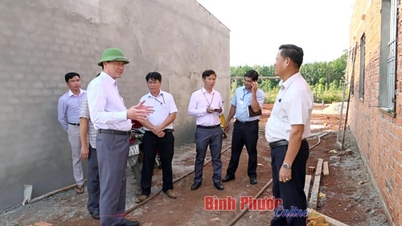


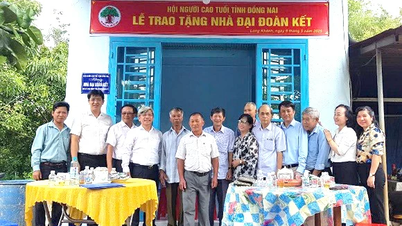








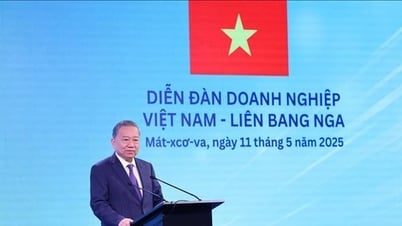

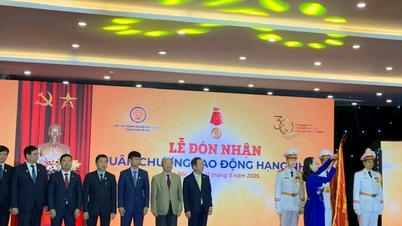
![[Photo] National Assembly Chairman Tran Thanh Man attends the Party Congress of the Committee for Culture and Social Affairs](https://vphoto.vietnam.vn/thumb/1200x675/vietnam/resource/IMAGE/2025/5/11/f5ed02beb9404bca998a08b34ef255a6)














































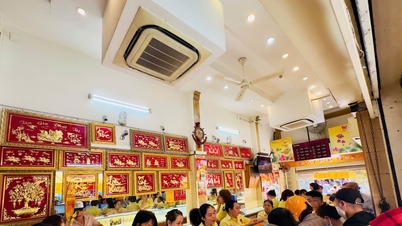

















Comment (0)